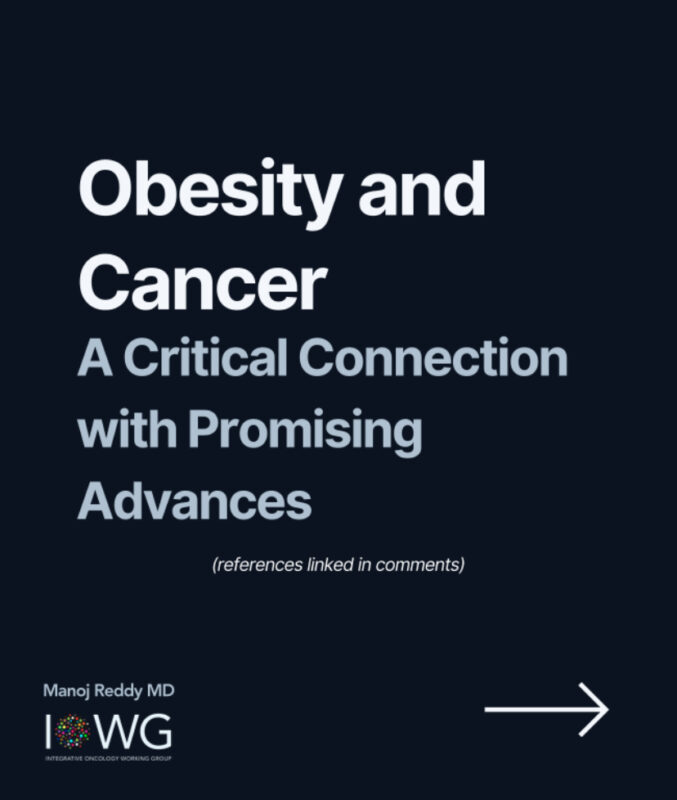Manoj Reddy, Founder and President of IOWG, shared a post on LinkedIn:
“Obesity and Cancer: A Critical Connection with Promising New Advances GLP-1/GIP Agonists
Obesity is linked to 13 types of cancer, including breast, colorectal, liver, kidney, pancreatic, and endometrial cancers, as highlighted in the American Association for Cancer Research Cancer Progress Report 2022. Obesity drives chronic inflammation, hormonal dysregulation, and metabolic dysfunction, creating a biological environment that promotes cancer growth.
Metabolic Syndrome and Cancer Progression
Obesity and metabolic syndrome amplify cancer risk by fueling inflammation, insulin resistance, and altered adipokines. These factors contribute to tumor progression, underscoring the urgent need to address these drivers in cancer prevention (Benjamin and Van Hoff, 2024).
GLP-1 and GLP-1/GIP Agonists in Cancer Care
Emerging therapies like GLP-1 receptor agonists are redefining the treatment landscape. Kong et al. found that tirzepatide reduced body weight by over 20% and tumor weight by more than 60% in endometrial cancer models, showcasing its dual-action potential against obesity and cancer (Gynecologic Oncology, 2024).
Zheng et al. further highlighted GLP-1/GIP dual agonists’ potential across multiple cancers, including colorectal and pancreatic, with effects such as tumor suppression, angiogenesis modulation, and inflammation reduction (Signal Transduction and Targeted Therapy, 2024).
Additional research also points to colorectal cancer benefits, where GLP-1 receptor agonists reduced cancer risk in type 2 diabetes patients (JAMA Oncology, 2024). Moreover, tirzepatide is being studied for its role in reducing breast cancer recurrence by targeting obesity and circulating tumor DNA (Baylor Scott & White News, 2024).
A Personal Call to Action
As an oncologist, I pursued board certification from the American Board of Obesity Medicine because of the profound link between obesity and cancer. This intersection demands a comprehensive approach that addresses metabolic and inflammatory drivers to improve outcomes and reduce risks.
At the Integrative Oncology Working Group, we focus on advancing integrative, systemic strategies to transform cancer care. Join us in this mission and explore how we can collaborate to make a difference.
References linked in comments.
Let’s discuss! Look forward to seeing your comments below.”



